< Introduction
Day 2 >
![]() he trip got off to a great start thanks to the gracious and helpful hosts at Best Foot Forward B&B in Milngavie. A shout out as well to A2B Travel-Lite Baggage Transfer who smoothly handled a last minute change in arrangements.
he trip got off to a great start thanks to the gracious and helpful hosts at Best Foot Forward B&B in Milngavie. A shout out as well to A2B Travel-Lite Baggage Transfer who smoothly handled a last minute change in arrangements.
The day started with the departure from Milngavie through a variety of parks and trails. The West Highland Way is well-marked so no concerns about losing the trail. One of the first sites I was eager to see were the Dumgoyach standing stones - they're to the east of the trail and the side trip involved some very wet feet. I then walked by Glengoyne Distillery, but did not stop in (a first!). Later, I had a brief stop at the lovely little village of Gartness and had a futile attempt to spot the remains of a Roman fort, the most northerly in Scotland, but I'm fairly certain that what I saw was the mundane remains of a retired quarry.
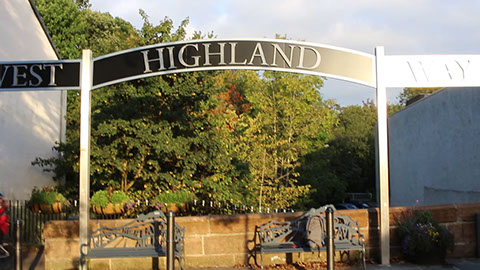
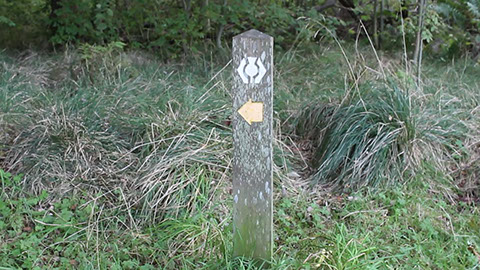
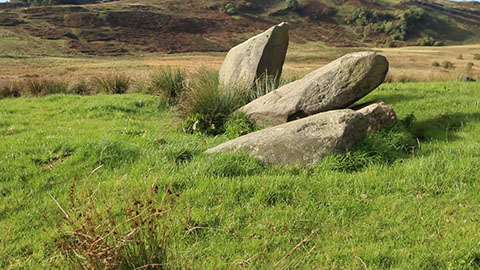
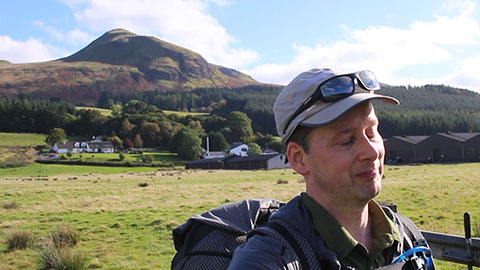
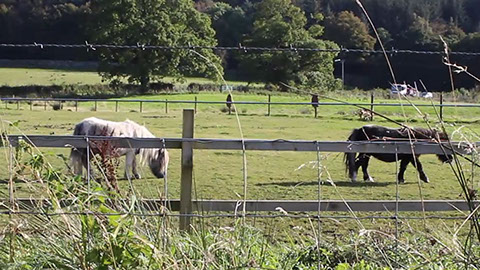
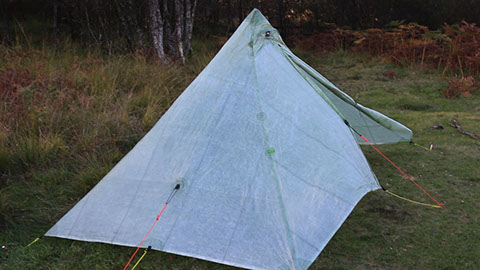 The start of the West Highland Way in MilngavieThe waymark for the WHW. The trail is well-marked and you'll get to know this symbol well.The Dumgoyach (nearly) Standing StonesResisting the temptation of Glengoyne Distillery (in the background)Shetland poniesFirst camp at the base of Conic Hill<>1 - 6
The start of the West Highland Way in MilngavieThe waymark for the WHW. The trail is well-marked and you'll get to know this symbol well.The Dumgoyach (nearly) Standing StonesResisting the temptation of Glengoyne Distillery (in the background)Shetland poniesFirst camp at the base of Conic Hill<>1 - 6





I passed by Drymen not long after and was close to the end of my first day's walk. Passing through Queen Elizabeth Forest Park I had hoped to find St. Maha's Well, but that wasn't to be. Upon exiting the park I knew I would soon have to choose a campsite. I had a couple of hours of sunlight left; however, Conic Hill was quickly approaching. If I passed over that then I would enter the restricted-camping zone. There's no camping from the northwest side of Conic Hill to a few miles (approximately 9 miles, as I recall) up the shores of Loch Lomond - too far to cover in the time I had left. The camping restriction is due to misuse, abuse, and generally poor behavior of many campers along that section of the West Highland Way.
camping from the northwest side of Conic Hill to a few miles (approximately 9 miles, as I recall) up the shores of Loch Lomond - too far to cover in the time I had left. The camping restriction is due to misuse, abuse, and generally poor behavior of many campers along that section of the West Highland Way.
Still, I camped along the Highland Boundary Fault - can't complain about that.













